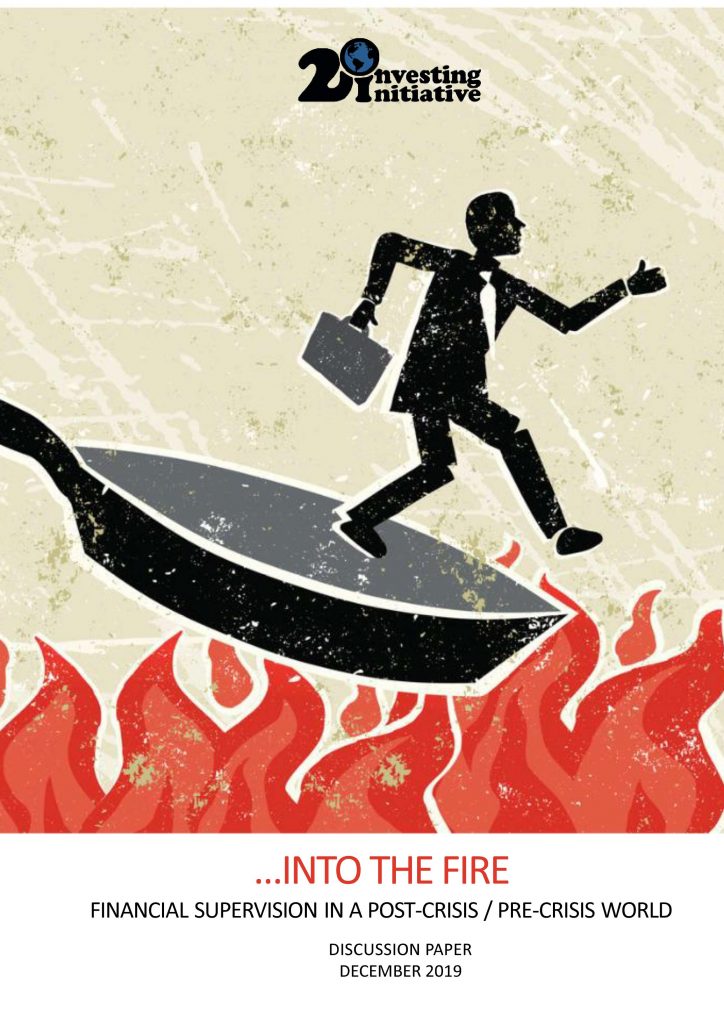The past one or two years have slowly seen the rise of a change in narrative, as the aftermath of the financial crisis starts to recede from view and a return to normalcy is on the horizon.
In this context, financial supervision starts to enjoy the space to assess its future role. In using this space, it faces an “out of the frying pan into the fire” metaphor. The post-crisis world is very much the pre-crisis world in terms of the medium and long term risks it faces. Of course, this dynamic also represents an opportunity to strengthen the role of financial markets in protecting the common good, aligning with and contributing to macro policy objectives.
In facing this challenge, financial supervision will need to develop new tools and instruments to respond to these challenges. The relative calm before the storm financial markets enjoy today needs to be used by financial supervisors as the moment to prepare for the future. While many of these dynamics may have their origin in the economy, financial supervisors, given their focus on the future, the governors of capital allocation and safeguards of the system that propagates risks (finance), are in a unique position to respond to them. Each individual driver will fundamentally disrupt the global economy. In unison, they are set to create an unprecedented dynamic.
Financial markets face three new types of risks.
- The advent of mega risks. The modern economy faces risks at unprecedented scale, dwarfing previous calamities. Climate change – depending on the severity of impact – may literally wipe out large parts of the global economy. The threat of nuclear warfare is returning to the agenda, and our growing forays into space may heed new risks. New technologies like (super) artificial intelligence create new risks.
- The 3rd, 4th and 5th industrial revolution(s). We are in the midst of a fundamental change to the economy, driven by climate objectives designed to decarbonize the economy, technology breakthroughs in artificial intelligence, robotics, 3D printing, and new economic structures (“sharing economy”). Many of these trends are linked as technology breakthroughs in AI and robotics may also accelerate decarbonization. Capital in 2050 will look fundamentally different to Capital in 2018, giving rise to potential risks.
- The accelerating speed of financial markets. The first and second trend occur in the context of ever–faster and automated financial markets. Fintech is disrupting finance itself, independent of the first two points and the rise of algorithm trading is set to amplify risk pass–through in the system. It also has implications for the required speed of financial supervision.
The objective of this paper is to map these challenges and potential solutions that can be designed in response.


